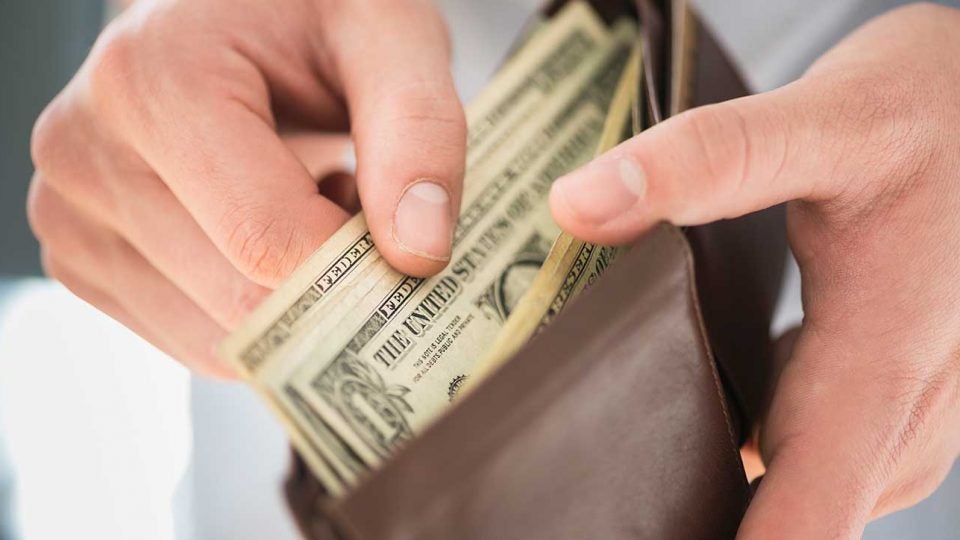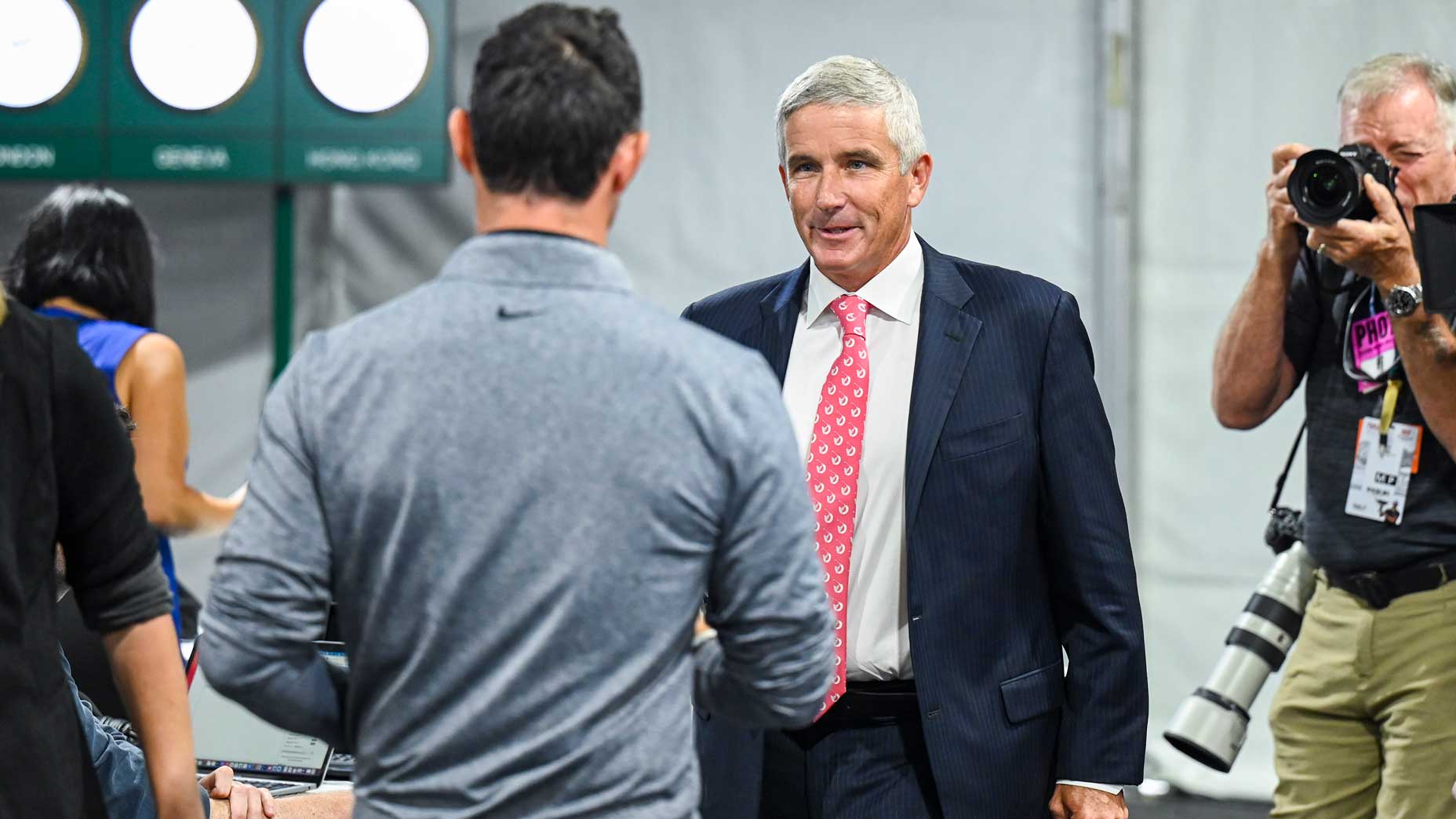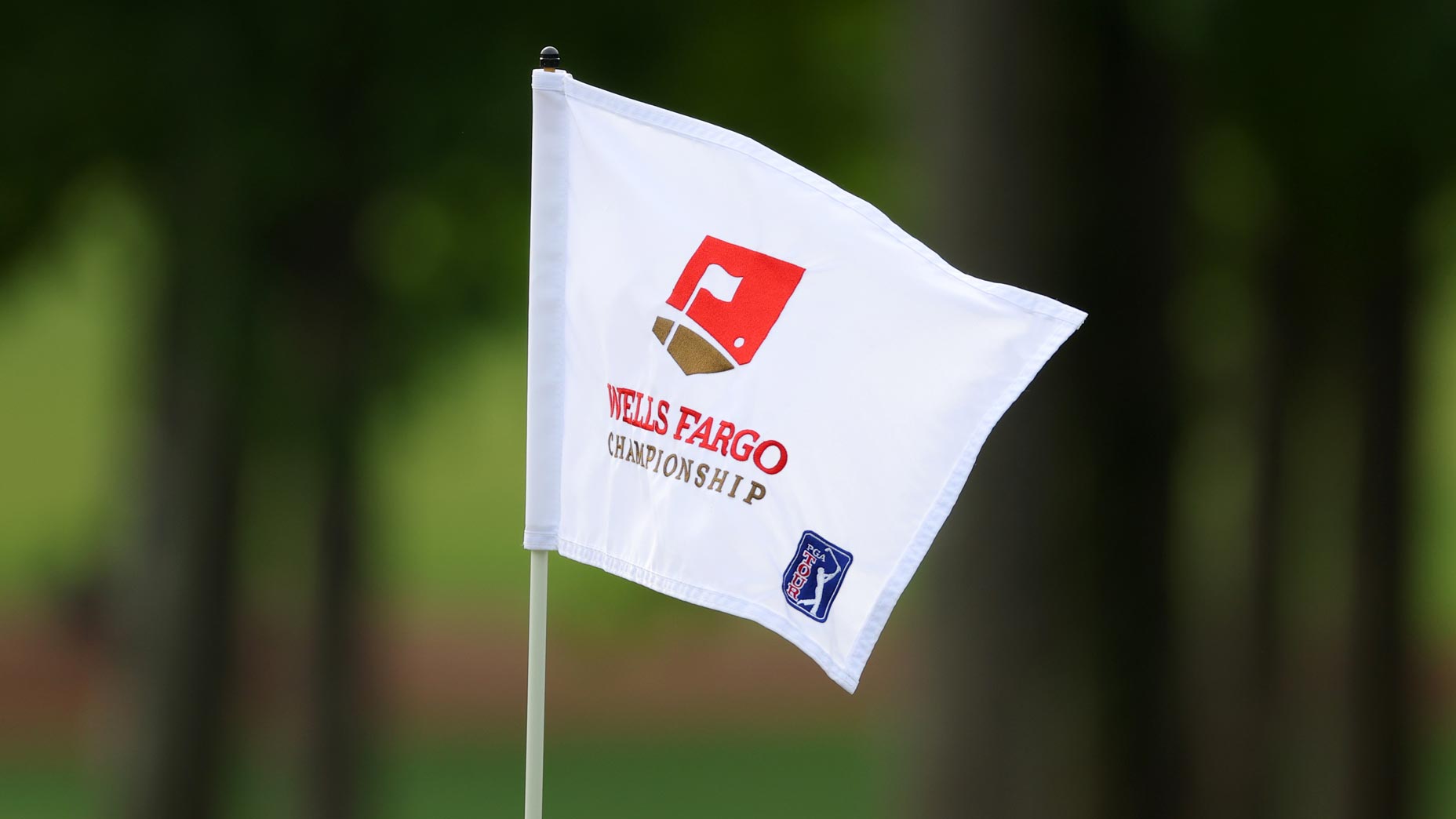Unless your given name is Eldrick Tont Woods or Philip Alfred Mickelson, odds are you’re never going to play a match for $9 million. But there’s a decent chance that someday you’ll play for money — be it a $5 Nassau, a buck-a-hole skins game, or a $20 grudge match.
Which means you need to know: What’s the appropriate time and place to settle up?
No matter the stakes, the same rules of etiquette apply.
Exchanging money on the 18th green (or wherever the match ends) is, of course, an option, but it’s not a good one. Like joking about a tragedy the day after, it’s just a bit too soon. A greenside transfer also runs the risk of holding up the group behind you.
This being the iPhone age, you could use a payment app, like PayPal and Venmo, to square up the balance as you’re walking to your car. But just because you can doesn’t mean you should. The rules of combat dictate that when someone beats you, they should have the satisfaction of watching you crack open your cobwebbed wallet and cough up cold, hard cash.

So, where and when, exactly, should this happen?
“The 19th hole, over drinks,” says Martin De Knijff, an avid golfer, former World Series of Poker winner and founder of the sports gaming company, Metric Gaming.
In this post-round ritual, De Knijff says, both winner and loser have a role to play. Proper etiquette suggests that the winner should put his or her profits toward buying the first round, and the loser should raise a glass and congratulate the victor on a round well-played, even if it wasn’t (we’re talking social niceties; sometimes a little faking-it is required).
Along with this toast, the payment should be made.

In an ideal world, this should all go smoothly; the loser should settle up without prompting. But in the awkward event that they don’t, De Knijff says, it’s incumbent upon the winner to be the bigger person and not bring it up. At least not directly.
“You don’t want to cause a confrontation,” De Knijff says. “But if you’re all getting ready to leave and the debt hasn’t been settled, you could get your point across by saying something like, ‘Next time, we’ll play double-or-nothing.’”
That leaves the door open for the loser of the bet to make things right.
And if they don’t?
“Then,” De Knijff says, “you know you’re never playing a match with them again.”








